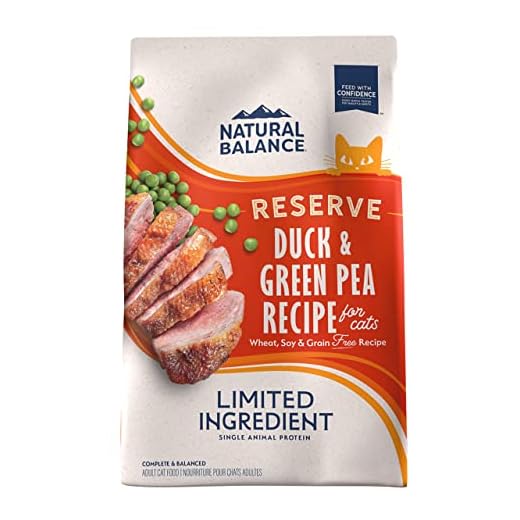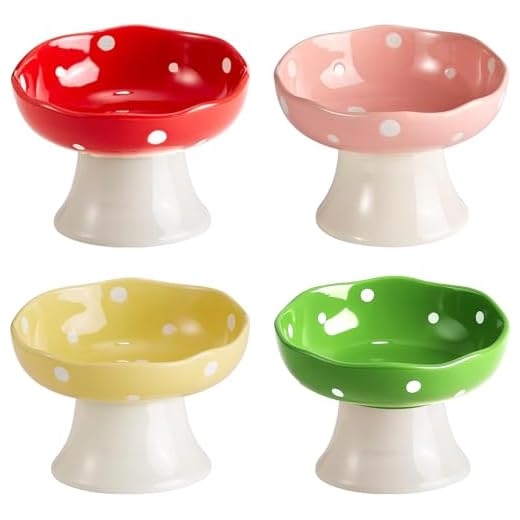



It’s frustrating when my meal ends up on the floor instead of in my belly. If this happens frequently after consuming those moist goodies, it’s time to consider a few possibilities. One common reason is eating too quickly. Gulping down meals can lead to regurgitation, so try smaller portions or puzzle feeders to slow down my dining pace.
Another culprit might be the ingredients. Some soft varieties contain richer proteins or additives that my tummy finds challenging to digest. Experimenting with different brands or flavors can help identify what sits well with me. Also, check for any allergies; certain components could trigger an adverse reaction.
Don’t forget about hydration! Sometimes, insufficient water intake can upset my digestive system. Ensure I have access to fresh water and consider mixing in a small amount of water with those soft meals for better consistency.
If these adjustments don’t lead to improvements, a trip to the vet is a wise choice. Underlying health issues can also manifest through vomiting, and it’s better to be safe than sorry. Keeping track of my eating habits will help identify patterns and assist the vet in diagnosing any potential concerns.
Why My Feline Friend Vomits Post-Meal
If your furry companion experiences regurgitation shortly after consuming a meal, consider adjusting portion sizes. Smaller feedings can aid in digestion, preventing the discomfort that leads to vomiting. Monitor the pace at which your pet eats; some of us enjoy devouring meals quickly, which can exacerbate the issue.
Ingredient Sensitivities
Evaluate the ingredients in the diet. Some flavors or additives might not agree with your pet’s stomach. Transitioning to a novel protein or grain-free option may help identify potential intolerances. Always introduce new products gradually to avoid further digestive upset.
Hydration Levels
Ensure your pet is adequately hydrated. Sometimes, insufficient water intake can lead to gastrointestinal distress. Providing fresh water alongside meals encourages healthier digestion. Offer wet food with higher moisture content to assist in hydration and overall well-being.
Regular vet check-ups are crucial. Persistent vomiting could indicate an underlying health issue requiring professional attention. Keeping track of any additional symptoms can aid in diagnosis and treatment.
Common Reasons for Vomiting After Wet Food
In some cases, rapid consumption of meals can lead to regurgitation. When I gobble up my dish too quickly, my stomach struggles to process everything at once. Slowing down can help; using a puzzle feeder or spreading out the meal on a flat surface encourages a more leisurely approach.
Ingredient Sensitivities
Some ingredients in canned options might not sit well with my tummy. It’s essential to check for common allergens like chicken, fish, or grains. If certain components cause issues, switching to a limited-ingredient diet can provide relief and help identify the culprit.
Temperature of Meals
Temperature plays a role too! Serving chilled or too warm meals can upset my stomach. Aiming for room temperature helps ensure I enjoy my meal without any unpleasant aftermath. Always test the temperature before serving; it’s worth it for a happy belly!
If vomiting persists despite adjustments, consulting a veterinarian is wise. They can rule out any underlying health concerns and provide tailored recommendations. It’s best to keep me healthy and happy!
Identifying Food Allergies in Cats
Pay attention to any unusual reactions following meals. If I notice itching, excessive grooming, or gastrointestinal distress, it could indicate a sensitivity to certain ingredients.
Common Symptoms
Look for signs like vomiting, diarrhea, or skin irritations. If these symptoms persist, it’s wise to consult a veterinarian for an accurate diagnosis. They might suggest an elimination diet to pinpoint the specific allergen.
Elimination Diet Approach
This method involves feeding a limited ingredient diet for several weeks, then gradually reintroducing previous ingredients one at a time. Monitoring reactions during this period helps identify triggers. If itching is an issue, consider using the best anti itch spray for cats to relieve discomfort while assessing the situation.
Assessing Portion Sizes for Your Feline Friend
It’s crucial to determine the right amount of grub for mealtime to prevent discomfort and potential issues. Start by checking the feeding guidelines on the packaging of the product. These recommendations are typically based on weight and age, offering a solid starting point.
Calculating Daily Intake
For an accurate assessment, consider my weight and daily activity level. A general rule is to provide about 2-4% of body weight in total food. For instance, if I weigh 10 pounds, I should receive between 0.2 and 0.4 pounds of nourishment each day. Adjust according to my activity; more active days might require a slight increase.
| Weight (lbs) | Daily Food (cups) |
|---|---|
| 5 | 0.1 – 0.2 |
| 10 | 0.2 – 0.4 |
| 15 | 0.3 – 0.6 |
| 20 | 0.4 – 0.8 |
Monitoring and Adjusting Portions
Observe how I react to the servings. If I frequently leave leftovers or seem overly eager for more, adjust the portions accordingly. Regular weigh-ins can help gauge if I’m maintaining a healthy weight, which is key to my overall wellness. If unsure, consulting with a vet offers tailored advice specific to my needs.
Impact of Feeding Schedule on Vomiting
Setting a consistent mealtime can significantly reduce the chances of regurgitation. Regular intervals help stabilize digestion, allowing my system to adapt to the rhythm of intake. Skipping meals or irregular feedings may lead to overeating during the next opportunity, triggering discomfort and expulsion.
Smaller, more frequent servings are beneficial. This approach minimizes the volume in my stomach at any given time, reducing the likelihood of my body reacting negatively to excess intake. Aim for four to six smaller portions daily, rather than two larger ones.
Monitoring the timing of meals is also critical. Avoid feeding just before active play sessions, as physical activity can disrupt digestion and lead to upset. Scheduling meals at least an hour before playtime allows my body to settle.
Incorporating a reliable feeding routine can create a sense of security. Predictability in meal times helps to alleviate anxiety, which can also contribute to gastrointestinal issues. A calm environment during feedings enhances the overall experience, allowing for better digestion.
Consideration should also be given to the type of bowls used. Elevated or shallow dishes can promote a more comfortable eating posture, which might further reduce the chances of regurgitation. Additionally, ensure that the feeding area is quiet and free from distractions.
For those seeking additional efficiency in maintaining a clean environment, exploring options like the best pressure washer for tesla can be a great idea. Keeping the feeding area tidy supports a positive atmosphere during meal times.
Choosing the Right Type of Wet Food
Opt for high-quality brands that prioritize natural ingredients and avoid fillers. Look for options with real meat as the primary ingredient, ensuring a protein-rich diet.
Read the Labels
- Avoid foods with artificial preservatives, colors, or flavors.
- Check for named meat sources, such as “chicken” or “beef,” rather than vague terms like “meat by-products.”
- Ensure the product meets AAFCO standards, indicating balanced nutrition.
Consider Texture and Variety
- Experiment with different textures–pâté, chunks in gravy, or shredded–to determine preferences.
- Rotate flavors to prevent boredom and encourage appetite.
Monitor reactions closely. If a specific type leads to distress, switch to another. Consulting a veterinarian can provide tailored recommendations based on specific needs and sensitivities. Prioritize hydration by selecting options with higher moisture content, promoting overall health.
When to Consult a Veterinarian
If consistent regurgitation occurs, seek veterinary advice. This includes instances where the vomiting happens more than once in a short time or if it becomes a regular occurrence.
Look out for accompanying symptoms, such as:
- Persistent diarrhea
- Loss of appetite
- Weight loss
- Excessive lethargy
- Signs of dehydration
- Abdominal pain or swelling
When changes in behavior or unusual eating habits arise, it’s wise to reach out to a veterinarian. A professional evaluation can determine if there’s an underlying health issue.
Monitor the type and amount of wet nourishment offered. If a specific brand or flavor consistently leads to discomfort, it’s time to consult a vet.
Regular health check-ups are beneficial. Annual visits allow for early detection of potential problems, ensuring overall well-being.
In cases of sudden changes in health or persistent issues, prioritize a visit to the clinic. Timely intervention can make a significant difference.









